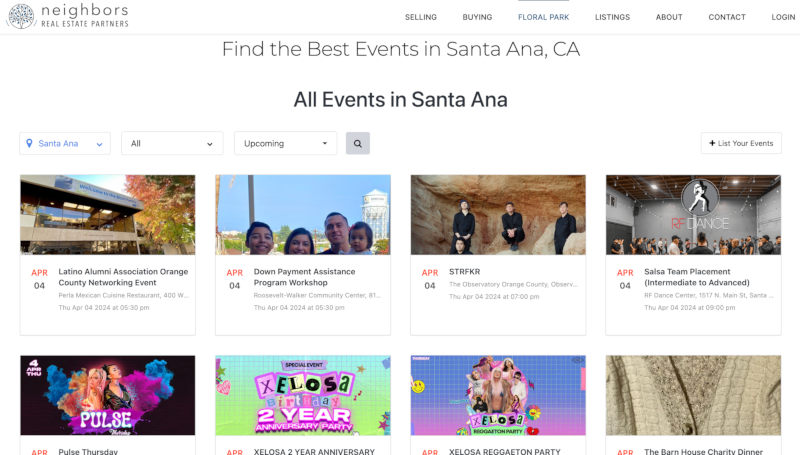How Free Resources Build Trust and Credibility With Clients
The U.S. real estate industry is worth trillions of dollars. Stellar marketing separates the top real estate professionals from their peers, who grind with nothing to show for their effort. Free resources are one of the worst-kept secrets of successful salespeople in the industry.
Freebies cost nothing to the receiver but a ton to the producer. Still, prudent agents, brokers and realtors know they’re worth the investment. If you want to promote your credibility and gain the trust of property buyers and sellers, leveraging your information advantage is the key to achieving your professional goals when done correctly.
Difference Between Trust and Credibility in Real Estate
Property buyers and sellers gravitate toward trustworthy, credible professionals to represent them. Trust and credibility seem synonymous, but there’s a stark difference between them. Misunderstanding it spells disaster for your marketing initiatives.
Being trustworthy means convincing prospective clients that you put their best interests above all. On the other hand, being credible means having a solid reputation for knowing what you’re talking about.
Unique characteristics underpin each quality. Empathy and authenticity help build trust, whereas competency and experience support credibility.
4 Benefits of Providing Free Resources to Your Real Estate Clients
Promoting yourself as more trustworthy and credible than others can keep you up at night. Fortunately, free resources can be your marketing machine’s fuel and engine. Sharing suitable information and choosing appropriate mediums to get your message across is vital to enjoying these four benefits.
1. Reaching a Wide Audience
Building a following on a global level is easier than ever, so consider producing quality content for a wider audience instead of reserving it for your leads. The internet is free education, so churn out insightful resources for public consumption to get your name out there and raise your profile as a real estate professional.
Each medium has pros and cons, so don’t limit yourself to marketing handouts and PDF files to discuss the topics you fancy. Consider these content types to target various audiences and establish yourself as a thought leader:
- Professional blog entries
- LinkedIn posts
- Email newsletters
- E-books
- Quora responses
- Reddit replies
- YouTube Shorts
- Instagram Reels
- TikTok videos
- Creative Commons-licensed infographics
- Monologue podcast episodes
Taking this route means you need to be a prolific content creator. It can be time-consuming because you must learn technical skills and master search engine optimization to make your content discoverable.
Do it on the side and outsource tasks to experts to avoid feeling overwhelmed. If you do well, your assets can generate numerous rave reviews, earn referrals and create more revenue streams over the long term.
2. Attracting Business
The work that goes into property buying and selling requires meticulous research. Real estate transactions can be technical. Ignorance can be costly because knowledge aids sound decision-making and effective negotiation.
Average individuals can understand the ins and outs of real estate if they apply themselves. However, most need more bandwidth to learn enough to make informed decisions. That’s why working with an agent or Realtor offering free resources can be tremendously valuable.
Spoon-feeding your prospective clients with data-driven insights will make their lives easier. Curating relevant information from various authoritative sources, presenting your findings in a digestible and professional manner, and charging nothing for your helpful materials can generate leads and convert them into clients.
3. Establishing Transparency
Real estate interests historically ignore fair play. The intermediaries that helped close deals for unqualified homeowners weren’t solely responsible for the subprime mortgage crisis of 2008. However, many were complicit in the massive foreclosures that defined the event.
Housing bubbles have shaped the American public’s perception of the industry. Many people expect agents and brokers to be secretive about what they know. The prevailing notion is real estate pros use their insider information to manipulate transactions to satisfy their selfish economic interests covertly.
That’s why property buyers and sellers view forthcoming real estate professionals favorably. Being an oversharer subverts expectations. It makes your brand a breath of fresh air in a cutthroat industry that doesn’t mind jeopardizing people’s wealth to rake in eye-watering profits.
Actively addressing people’s blind spots and plugging knowledge gaps to help people think critically for themselves can demonstrate your subject matter expertise and display your ethical behaviors.
Skeptics still won’t take your word at face value and may instinctively think you’re a liar. Presenting yourself as an open book allows doubters to fact-check your statements and data before deciding whether you’re reliable instead of forcing them to take a chance on you without concrete evidence.
4. Fostering Partnership
It’s common knowledge that real estate buyer and seller representatives almost always make a living through commissions, which averaged 5.46% in 2023. Although Realtors and agents make more money when deals go as high as possible, notable property price increases sometimes barely drive up their earnings.
Self-serving real estate professionals may offer lousy advice when the juice isn’t worth the squeeze. They’re supposed to use their specialized knowledge to pursue strategies supporting the interests of the clients they represent.
However, unethical Realtors and agents may advise against tactics that hardly benefit them and behave differently when they have more skin in the game. These characters give the real estate business a bad name and make the public cynical.
Offering free resources can transform your relationships with clients from competitive to cooperative. Throwing light on market trends and having candid talks about every trick in the book to help clients make the most out of the deal can boost your trustworthiness and credibility. Your clients will see you more as a partner and less as an adversary.
8 Free Resources Real Estate Professionals You Should Provide
So, what free materials should you share with your clients? These eight can offer them the most value.
1. Local Property Market Reports
Access to the latest data on local real estate markets is crucial in deciding where and which properties to buy and when to sell. Establishing which locations buyers or sellers control based on key metrics, such as home price movements, sales figures and inventory levels, helps set your clients’ expectations accordingly and reconcile their needs and budgets.
Your reports can also highlight notable trends, such as the characteristics of the fastest-selling property types, towns with the highest list price jumps, and zip codes with the most home sales over a specific period.
2. Neighborhood Profiles
Writing neighborhood pages is a fantastic way to shine a light on the communities you serve. It lets you articulate the positives of living in specific neighborhoods, helping your clients see what’s unique about them.
You can discuss some history, talk about the available sought-after amenities and mention fascinating facts about them, like any celebrity who grew up there. Supplement your arguments with stunning photographs and desirable listings.
Optimize your neighborhood profiles. Researching and inserting keywords organically and strategically makes the pages more visible through search engines. Using header tags to organize your content and alt text to describe your images can make a difference.
3. Community Entertainment Event Calendar
Serve as a local guide and promote the most exciting local events — such as concerts, football games, stand-up gigs or conventions — on the horizon to entice clients to buy a property in a particular market.
Make your list monthly or quarterly to ensure you provide the latest details. You can create an all-encompassing calendar or themed ones to appeal to those interested only in music, sports, comedy, pop culture or business.
4. Definition of Terms
Create an exhaustive glossary of terms. Demystify jargon with simple language to help your clients navigate the real estate process more confidently. Describe various mortgage types, explain what constitutes joint tenancy and compare pre-qualification against pre-approval — you get the idea.
5. Property Ownership Checklist
Even non-first-time property buyers and sellers can still miss vital components of the real estate process. As the expert, provide pointers on what to do — like being realistic about what they can afford and meeting minimum credit score requirements — to ensure everything goes smooth sailing.
A good checklist can just comprise bullets of essentials with explanations on why they matter and expert advice.
6. List of Credentialed Professionals
Real estate transactions generally require the services of third-party businesses to cover all the bases. Sellers may need construction contractors to carry out necessary repairs, while buyers typically use home inspectors and title companies to uncover hidden structural issues and unsatisfied liens.
Offering recommendations is unethical due to possible conflicts of interest, but there’s nothing wrong with making lists of local companies and professionals your clients can choose from.
7. FAQ
Do you keep getting asked the same questions repeatedly? Chances are, your future clients will ask them, too. Create dedicated material to answer the general questions to save everyone time and reserve your resources for more productive exchanges.
8. Client Testimonials
Use social proof to your advantage. Your satisfied past clients shouldn’t mind putting in a good word for you, so solicit them for comments. Ensure your featured testimonials are verifiable, so use praisers who are willing to entertain people who may reach out to them.
Free Resources Elevate Real Estate Marketing
Producing fliers, vlogs, infographics and other types of content you can be proud of doesn’t come cheap. Still, it’s a small price to position yourself as your area’s most trustworthy and credible real estate figure.
post contents
The U.S. real estate industry is worth trillions of dollars. Stellar marketing separates the top real estate professionals from their peers, who grind with nothing to show for their effort. Free resources are one of the worst-kept secrets of successful salespeople in the industry.
Freebies cost nothing to the receiver but a ton to the producer. Still, prudent agents, brokers and realtors know they’re worth the investment. If you want to promote your credibility and gain the trust of property buyers and sellers, leveraging your information advantage is the key to achieving your professional goals when done correctly.
Difference Between Trust and Credibility in Real Estate
Property buyers and sellers gravitate toward trustworthy, credible professionals to represent them. Trust and credibility seem synonymous, but there’s a stark difference between them. Misunderstanding it spells disaster for your marketing initiatives.
Being trustworthy means convincing prospective clients that you put their best interests above all. On the other hand, being credible means having a solid reputation for knowing what you’re talking about.
Unique characteristics underpin each quality. Empathy and authenticity help build trust, whereas competency and experience support credibility.
4 Benefits of Providing Free Resources to Your Real Estate Clients
Promoting yourself as more trustworthy and credible than others can keep you up at night. Fortunately, free resources can be your marketing machine’s fuel and engine. Sharing suitable information and choosing appropriate mediums to get your message across is vital to enjoying these four benefits.
1. Reaching a Wide Audience
Building a following on a global level is easier than ever, so consider producing quality content for a wider audience instead of reserving it for your leads. The internet is free education, so churn out insightful resources for public consumption to get your name out there and raise your profile as a real estate professional.
Each medium has pros and cons, so don’t limit yourself to marketing handouts and PDF files to discuss the topics you fancy. Consider these content types to target various audiences and establish yourself as a thought leader:
- Professional blog entries
- LinkedIn posts
- Email newsletters
- E-books
- Quora responses
- Reddit replies
- YouTube Shorts
- Instagram Reels
- TikTok videos
- Creative Commons-licensed infographics
- Monologue podcast episodes
Taking this route means you need to be a prolific content creator. It can be time-consuming because you must learn technical skills and master search engine optimization to make your content discoverable.
Do it on the side and outsource tasks to experts to avoid feeling overwhelmed. If you do well, your assets can generate numerous rave reviews, earn referrals and create more revenue streams over the long term.
2. Attracting Business
The work that goes into property buying and selling requires meticulous research. Real estate transactions can be technical. Ignorance can be costly because knowledge aids sound decision-making and effective negotiation.
Average individuals can understand the ins and outs of real estate if they apply themselves. However, most need more bandwidth to learn enough to make informed decisions. That’s why working with an agent or Realtor offering free resources can be tremendously valuable.
Spoon-feeding your prospective clients with data-driven insights will make their lives easier. Curating relevant information from various authoritative sources, presenting your findings in a digestible and professional manner, and charging nothing for your helpful materials can generate leads and convert them into clients.
3. Establishing Transparency
Real estate interests historically ignore fair play. The intermediaries that helped close deals for unqualified homeowners weren’t solely responsible for the subprime mortgage crisis of 2008. However, many were complicit in the massive foreclosures that defined the event.
Housing bubbles have shaped the American public’s perception of the industry. Many people expect agents and brokers to be secretive about what they know. The prevailing notion is real estate pros use their insider information to manipulate transactions to satisfy their selfish economic interests covertly.
That’s why property buyers and sellers view forthcoming real estate professionals favorably. Being an oversharer subverts expectations. It makes your brand a breath of fresh air in a cutthroat industry that doesn’t mind jeopardizing people’s wealth to rake in eye-watering profits.
Actively addressing people’s blind spots and plugging knowledge gaps to help people think critically for themselves can demonstrate your subject matter expertise and display your ethical behaviors.
Skeptics still won’t take your word at face value and may instinctively think you’re a liar. Presenting yourself as an open book allows doubters to fact-check your statements and data before deciding whether you’re reliable instead of forcing them to take a chance on you without concrete evidence.
4. Fostering Partnership
It’s common knowledge that real estate buyer and seller representatives almost always make a living through commissions, which averaged 5.46% in 2023. Although Realtors and agents make more money when deals go as high as possible, notable property price increases sometimes barely drive up their earnings.
Self-serving real estate professionals may offer lousy advice when the juice isn’t worth the squeeze. They’re supposed to use their specialized knowledge to pursue strategies supporting the interests of the clients they represent.
However, unethical Realtors and agents may advise against tactics that hardly benefit them and behave differently when they have more skin in the game. These characters give the real estate business a bad name and make the public cynical.
Offering free resources can transform your relationships with clients from competitive to cooperative. Throwing light on market trends and having candid talks about every trick in the book to help clients make the most out of the deal can boost your trustworthiness and credibility. Your clients will see you more as a partner and less as an adversary.
8 Free Resources Real Estate Professionals You Should Provide
So, what free materials should you share with your clients? These eight can offer them the most value.
1. Local Property Market Reports
Access to the latest data on local real estate markets is crucial in deciding where and which properties to buy and when to sell. Establishing which locations buyers or sellers control based on key metrics, such as home price movements, sales figures and inventory levels, helps set your clients’ expectations accordingly and reconcile their needs and budgets.
Your reports can also highlight notable trends, such as the characteristics of the fastest-selling property types, towns with the highest list price jumps, and zip codes with the most home sales over a specific period.
2. Neighborhood Profiles
Writing neighborhood pages is a fantastic way to shine a light on the communities you serve. It lets you articulate the positives of living in specific neighborhoods, helping your clients see what’s unique about them.
You can discuss some history, talk about the available sought-after amenities and mention fascinating facts about them, like any celebrity who grew up there. Supplement your arguments with stunning photographs and desirable listings.
Optimize your neighborhood profiles. Researching and inserting keywords organically and strategically makes the pages more visible through search engines. Using header tags to organize your content and alt text to describe your images can make a difference.
3. Community Entertainment Event Calendar
Serve as a local guide and promote the most exciting local events — such as concerts, football games, stand-up gigs or conventions — on the horizon to entice clients to buy a property in a particular market.
Make your list monthly or quarterly to ensure you provide the latest details. You can create an all-encompassing calendar or themed ones to appeal to those interested only in music, sports, comedy, pop culture or business.
4. Definition of Terms
Create an exhaustive glossary of terms. Demystify jargon with simple language to help your clients navigate the real estate process more confidently. Describe various mortgage types, explain what constitutes joint tenancy and compare pre-qualification against pre-approval — you get the idea.
5. Property Ownership Checklist
Even non-first-time property buyers and sellers can still miss vital components of the real estate process. As the expert, provide pointers on what to do — like being realistic about what they can afford and meeting minimum credit score requirements — to ensure everything goes smooth sailing.
A good checklist can just comprise bullets of essentials with explanations on why they matter and expert advice.
6. List of Credentialed Professionals
Real estate transactions generally require the services of third-party businesses to cover all the bases. Sellers may need construction contractors to carry out necessary repairs, while buyers typically use home inspectors and title companies to uncover hidden structural issues and unsatisfied liens.
Offering recommendations is unethical due to possible conflicts of interest, but there’s nothing wrong with making lists of local companies and professionals your clients can choose from.
7. FAQ
Do you keep getting asked the same questions repeatedly? Chances are, your future clients will ask them, too. Create dedicated material to answer the general questions to save everyone time and reserve your resources for more productive exchanges.
8. Client Testimonials
Use social proof to your advantage. Your satisfied past clients shouldn’t mind putting in a good word for you, so solicit them for comments. Ensure your featured testimonials are verifiable, so use praisers who are willing to entertain people who may reach out to them.
Free Resources Elevate Real Estate Marketing
Producing fliers, vlogs, infographics and other types of content you can be proud of doesn’t come cheap. Still, it’s a small price to position yourself as your area’s most trustworthy and credible real estate figure.
Latest articles
First-time homebuyers are probably eager to find their forever home in the housing market. However, there’s plenty of mystery behind the buying landscape, how to purchase and other considerations they should make.
Unlock the potential of content marketing in real estate with actionable strategies designed to boost your online presence and engage clients effectively.
The Importance of Google Rankings for Real Estate Agents Over the past fifteen years, I’ve seen how a good Google ranking can make or break a real estate business. Higher rankings mean more people seeing
BECOME A MEMBER
Become A Free DIY Real Estate Marketing Member & Get Access To:
LARGEST COLLECTION OF
Real Estate Marketing e-Books, Guides, Templates, & whitepapers
ON THE INTERNET
+ OVER 70 How To Website Training Videos including; WordPress, Agent Evolution Themes, & IDX Broker
+ DIY Real Estate Marketing Tips and Strategies Delivered to Your Inbox
Share this article
recent posts
Written by : Evelyn Long
Evelyn Long is a writer with over 5 years of experience in the real estate business. She is the co-founder of the home living magazine Renovated, where she writes about market trends.










